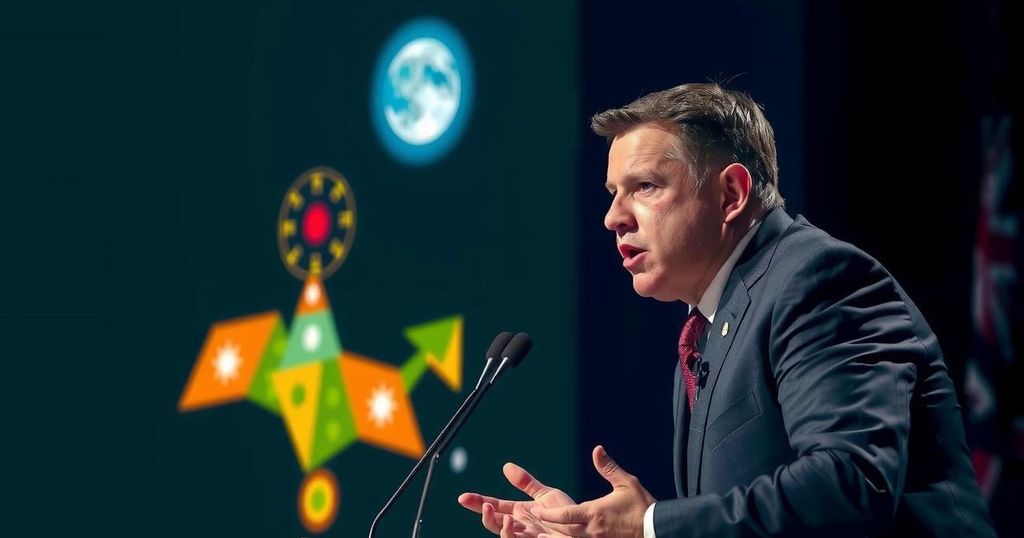Keir Starmer aims to reestablish UK climate leadership, announcing an 81% emission reduction target by 2035. This contrasts with Rishi Sunak’s previous policies, emphasizing national and global security through climate action. The Labour government commits to achieving 100% decarbonized domestic energy by 2030, reflecting a strategic pivot towards sustainable practices and economic growth.
British Prime Minister Keir Starmer has pledged to reestablish the United Kingdom as a leader in combating climate change, markedly diverging from the policies of former Prime Minister Rishi Sunak. During his address at COP29 in Baku on November 12, he announced an ambitious target to cut greenhouse gas emissions by at least 81% by 2035 compared to 1990 levels. This new goal surpasses the previous interim target of a 68% reduction by 2030, with an overarching objective of achieving full carbon neutrality by 2050. Starmer emphasized the UK’s commitment to partner with countries, investors, and businesses, stating, “We are renewing UK climate leadership.” His attendance at COP29 contrasts with Sunak’s initial reluctance to engage in international climate discussions. Furthermore, the new administration aims to accelerate the country’s transition to a low-carbon economy, setting a goal for 100% decarbonized domestic energy production by 2030, primarily through an expansion of North Sea wind farms. The UK’s last coal-fired power station was recently closed, marking a significant step toward sustainable energy solutions. The UK’s revised Nationally Determined Contribution is aligned with the recommendations of the Committee on Climate Change, which supports the feasibility of an 81% reduction in emissions by 2035. Starmer framed his climate agenda within the context of national security, asserting that “there is no national security, there is no economic security, there is no global security without climate security.” In summary, Prime Minister Starmer’s commitments signal a renewed dedication to environmental integrity and economic resilience through sustainable practices. The Labour government seeks to leverage climate action as a mechanism for job creation and economic growth while adhering to the UK’s international climate obligations. The initiatives underway reflect a determination to foster a secure and sustainable future for Britain amidst an ongoing global climate crisis.
The article discusses the United Kingdom’s renewed commitment to climate leadership under Prime Minister Keir Starmer, following a period of perceived regression under his predecessor, Rishi Sunak. The COP29 conference in Baku serves as the backdrop for Starmer’s announcements regarding ambitious greenhouse gas emission reduction targets. This shift illustrates a broader strategy by the Labour government to integrate climate security into national interests and to pivot toward sustainable energy solutions as part of the country’s economic growth agenda.
In conclusion, Prime Minister Keir Starmer’s commitment to reducing greenhouse gas emissions and enhancing the UK’s climate leadership at COP29 marks a significant policy shift. By prioritizing sustainability and making ambitious targets to decarbonize energy production, the UK aims to align itself with global climate objectives while promoting economic growth and energy security.
Original Source: www.lemonde.fr






